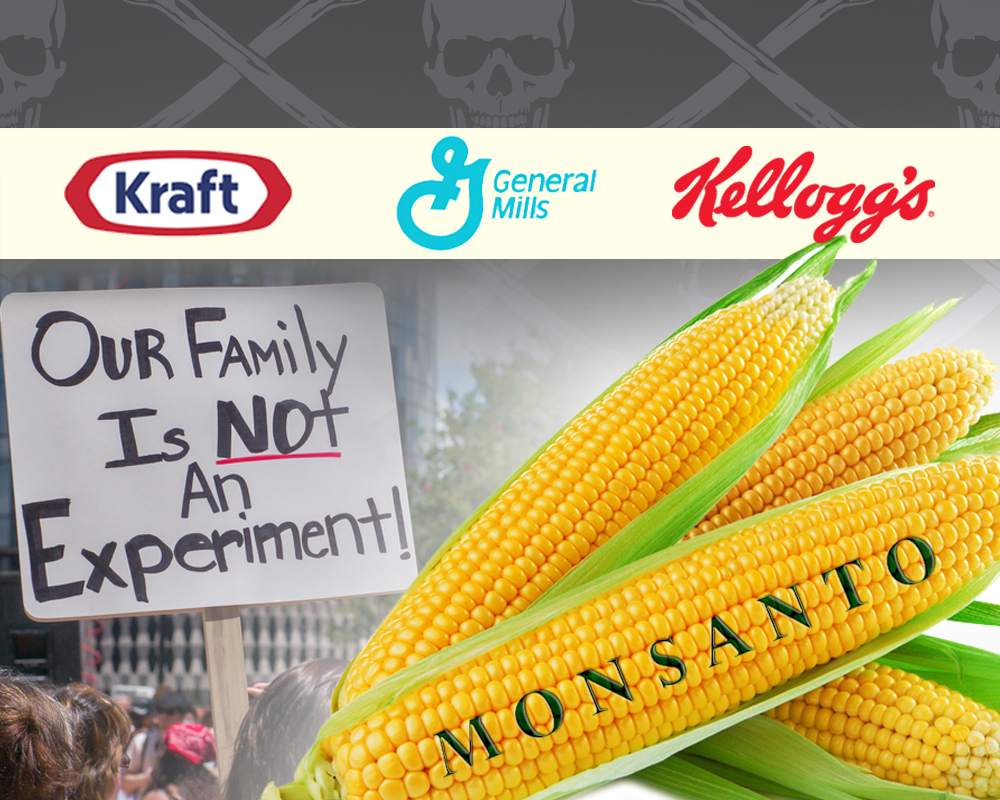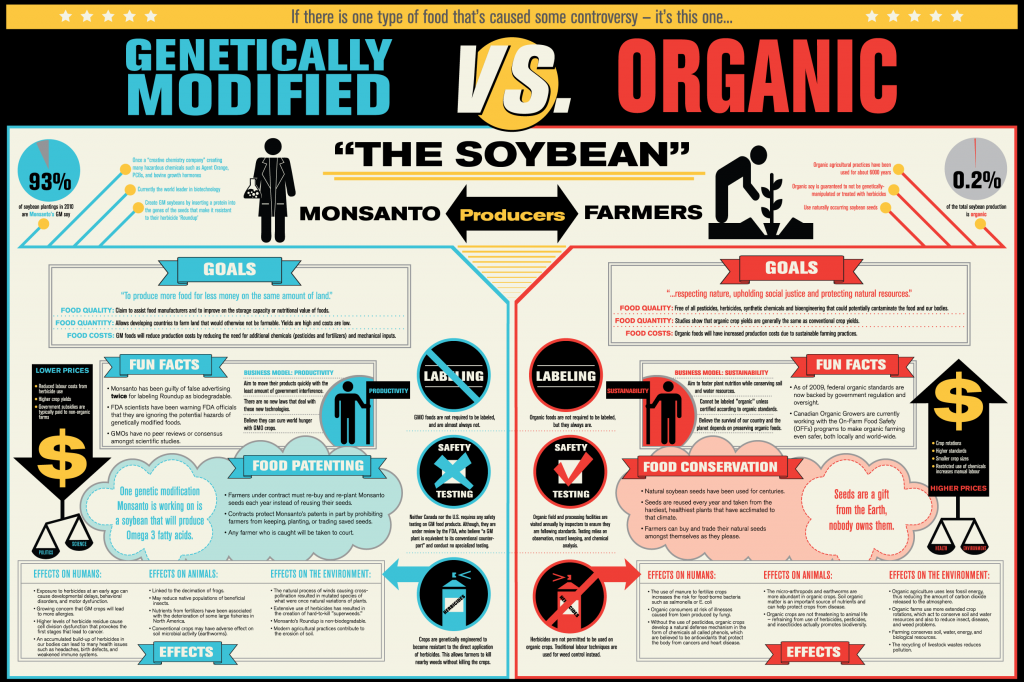We all know that good advertising and branding are important parts of selling products. But did you ever wonder what that really fancy logo and packaging are hiding? I’m talking about the major brands we trust to feed ourselves and our children. They say they use all-natural ingredients: whole grains, organic vegetables — you know, the good-for-you stuff. But what most of us don’t know is that the main ingredients used in most foods are grown from genetically modified organisms (GMOs), which are now known to cause a slew of health problems and illnesses, including cancer
The three major crops derived from genetically modified seeds are corn, soy and canola. Wow, most of the food we eat contain those crops. These seeds are engineered by Monsanto
Now, not all farmers were buying these seeds; some of the farmers worked very hard to remain organic. However, cross-pollination is a natural process. The wind blows a seed, it lands, a plant grows. Which means if a GMO seed ends up on an organic farmer’s land, the crops are no longer organic, the farmer will lose his or her organic certification, and Monsanto now owns that crop. If the farmer doesn’t comply with the company, Monsanto sues him or her for copyright infringement

Major brands such as Mars, Kellogg’s, General Mills, Kraft, PepsiCo and Coca Cola are all known GMO users and produce most of the foods we eat.
Today, about 70% of our crops are genetically modified. Which also means the livestock and the chickens we raise eat grain grown from genetically modified seeds. Everything we put into our bodies has a pretty high chance of containing GMOs. I was looking at the ingredients in my kids’ cereal the other day. The first four items listed — sugar (which is generally beet sugar), high-fructose corn syrup, corn meal and corn starch — all use GMOs. Major brands
Some people are doing something about it
GMOs are known carcinogens. The best way to avoid these silent killers is to go all-organic or grow your own food
So the next time you buy a product because of the cool logo or the awesome packaging, take a closer look. Companies that only care about the bottom line will take the cheapest and most cost-efficient way to get their product on the shelf — even if it means risking your health. There are however, companies that do truly care about your health
Read more about the myths and truths

Newsletter Signup
Get our Newsletter
Sign up to receive our industry trends newsletter:
